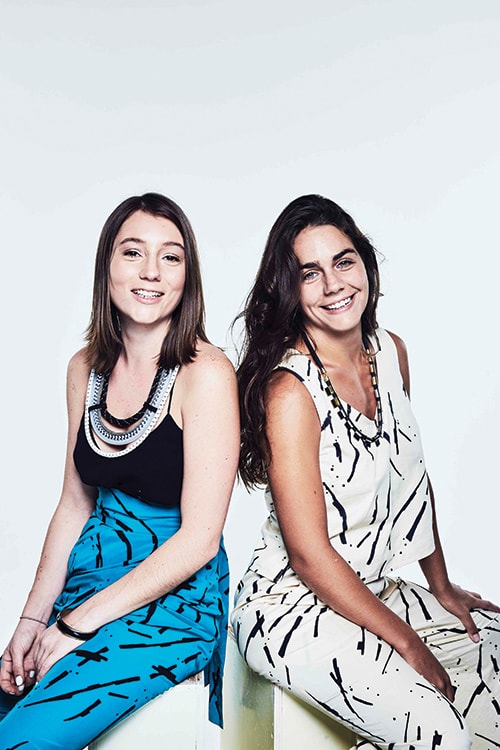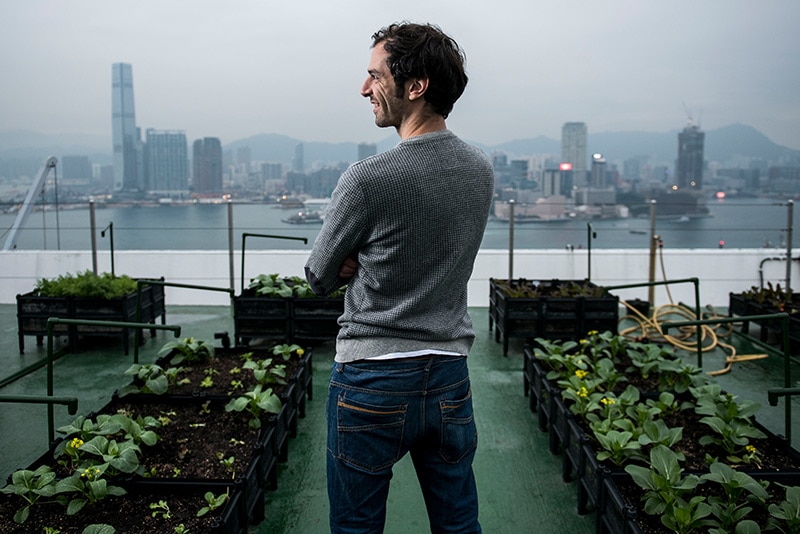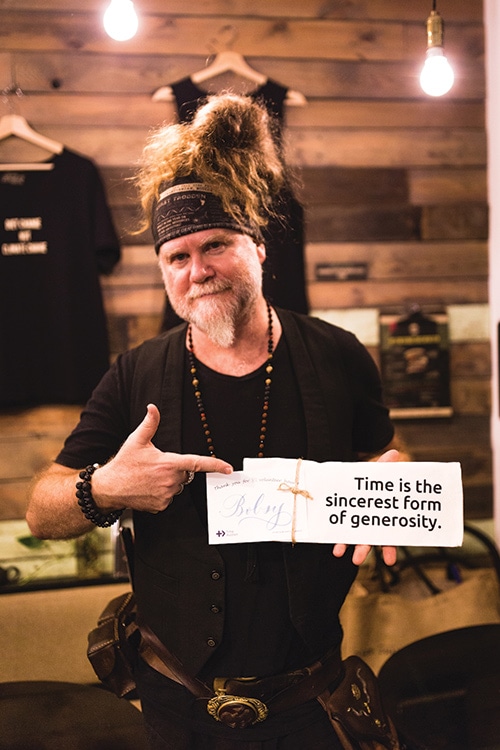10 Conscious Leaders Tell Us Why Sustainability Matters
“I want you to act as you would in a crisis, I want you to act as if our house is on fire. Because it is.” Dressed in a simple plaid shirt and jeans, 16-year-old Greta Thunberg stood out amongst other delegates at the World Economic Forum in Davos as she delivered a message that was as blunt and unaccommodating. Climate change has always been laden with empty promises despite alarming evidence of the need to reduce carbon emissions. And no one has been as effective as Thunberg in pressuring politicians into action. “It is time to act,” she said. “If not you, I will.”
It is 2019, and lip service no longer works. Neither does pointing fingers. People are getting impatient, and more importantly, realising that they can effect change from the ground up. The power lies with consumers, and businesses are starting to pay attention. More leaders are taking note. China is leading renewable energy production figures, and is currently the world’s largest producer, exporter and installer of solar panels, wind turbines, batteries and electric vehicles. In Singapore, Temasek Foundation Ecosperity has provided funding support of close to S$12 million for projects on sustainable and innovative solutions to improve liveability since 2016, and earlier this year, a new S$2 million grant was launched to encourage zero-waste living.
While we may still be far away from creating a sustainable world that can accommodate our present and future needs, change, no matter how small it may be, starts from each and every one of us. From a cosmetics retailer to a venture capitalist, here are 10 movers and shakers who are leading the charge on sustainability and sharing how we can play our part.
Stephanie Dickson and Paula Miquelis, Founders, Green Is The New Black (Industry: Events Services)
“We often come across people who think their actions won’t matter. But anyone can help simply by being mindful about how they consume. The straw you use may seem inconsequential, but think about this: a city like Singapore goes through 2.2 million straws a day. The decision you make to say ‘no’ to using straws can also influence others around you and send clear messages to the staff and companies providing them. These places take note. Organisations will listen. Change can happen when there are enough ripples from the ground to pressure them into action.”
Sonalie Figueiras, Founder, Green Queen & Ekowarehouse (Industry: Media and Wholesale)
“Time’s up on how we have been living. The linear economy does not work. The way we consume is flawed and does not account for environmental costs, population health costs and human labour costs. It is time for systemic change. Sustainability is accessible to all, and most people and businesses do want to make choices that are good for the planet. They just need access to information and solutions. What’s the alternative? To do nothing? I believe we can change. I believe there’s some hope. A rising tide lifts all boats; the more people that join the movement, the better.”
Annabelle Baker, Director, LUSH (Industry: Cosmetics)
“The power is entirely with consumers. The kind of decisions they make has massive influence. Movements can be started by just refusing to purchase a particular brand or product. The use of plastic straws in Hong Kong is a great example that gained attention and traction very quickly, and this was a ground-up movement that sent a clear message to businesses. We have to be conscious and actively aware of not just our buying power, but also the impact of our choices.
Moving forward, we should also focus on regeneration rather than only looking at sustainability. To sustain means to maintain what we currently have in terms of the natural world, but the reality is that whatever we buy will cause wastage. The key is how to control it—for example, using a shampoo bar can equate to 3 bottles of 250ml shampoo, or going to local wet markets to buy food and fruits that do not come with packaging.”
Brian Reilly, CEO & Founder, revolv. (Industry: Renewables & Environment)
“Communities, cities, and countries are taking action and recognising the global problem with single-use plastics and our current consumption habits. When we shared our concept for smart-enabled reusable containers and smart machine learning logistics software to drive citywide programmes, the reception has been nothing short of incredible. I hear from leaders in Asia, large financial institutions in Hong Kong and Singapore, hotel chains and property groups, world-class universities, F&B chains and more, how excited they are for our software and system, and how ready they are to adopt change.”
Pol Fàbrega Vilella, Co-Founder, Rooftop Republic (Industry: Farming)
“How are we going to feed 9.8 billion people in 2050 without killing our planet along the way? According to most estimates, we’ll need to increase our food production by a massive 70%. We don’t have another planet or more water and land to play with. We are already using all our resources. And that is, to me, the biggest challenge we will have to face. We need to fundamentally transform the way we grow, consume, dispose and even think about our food!
There are incredibly strong grassroots movements over the last few decades that have been pushing for a sustainable food future, but change is slow. Why? Because our systems are not built around sustainability. Capitalist systems focus on profit, short-term gains and permanent growth. The system is at odds with the steps needed to build a sustainable future. We need to redefine and rethink capitalism so that growth and profits do not come at the expense of our planet. The power of the industry is often the biggest stopper as it has a tremendous influence on policy, public opinion and even research on climate change. Hopefully, growing efforts at the grassroots level all around the world are pushing to put both people and the planet’s health at the centre of a new food system.”
David Yeung, Founder, Green Monday & Green Common (Industry: Non-Profit Organisation Management and F&B)
“Clean and healthy food is going to be scarce with billions to feed in the future. We have to look at more efficient food production that uses less natural resources while minimising pollution and carbon emissions, and AgTech and FoodTech will be crucial to address issues of food security. We cannot wait for someone else to take the lead, or to put the blame on our governments and politicians. Businesses and consumers are looking for better ways to live and to eat. The percentage of flexitarians in Hong Kong has skyrocketed from 5% to 24%. We can see an exploding demand for brands such as Beyond Meat, Califia and Oatly. There is clear evidence that people are more than willing and ready to switch once they are aware that there are options available to them.”
Bobsy Gaia, Founder, MANA! (Industry: F&B)
“Awareness is the ultimate resource we have. Most humans have heard about the need to recycle and the effect commercial and industrial waste has on our ecosystems, but they may not realise the impact of food on pollution. We are eating up our planet. Our campaigning has even reached some schools in Hong Kong that advocate eating vegetarian for 1 to 2 days per week. And at Mana!, we are reinterpreting and reengineering fast food from unhealthy and cheap to the healthy, wholesome and eco-conscious. There is also a myth that sustainability is expensive—propagated by the mainstream media and businesses. The truth is eating healthy need not be expensive, and can actually save money in the long run with the health benefits it brings.”
Malvina Kang, Founder, Hom Yoga (Industry: Health, Wellness and Fitness)
“My intentions in the last 18 years of practising yoga have evolved from myself to serving others. Raising a 4-year old child and a second pregnancy brought me even closer to the question of the kind of world we are creating for future generations. There was an overwhelming need to make changes in my life. I took baby steps at home; being plastic-free, removing toxins through the choice of products and food we consumed, which only strengthened the urge to delve more into a sustainable lifestyle. More importantly, I realised how much less we needed of everything material. Pure joy comes in simple and shared moments that are within our reach in an environment we feel well in.”
Lucia Torresi, Founder, Ecoparties (Industry: Events Services)
“My sister and I were invited to many birthday parties last year. It was lots of fun but we saw how everything ended up in the rubbish bin at the end of the celebrations. My motto is to ‘Stop thinking, Start Acting’, and we decided that enough was enough. Ecoparties was created to help stop all the waste of cups, plates, cutlery and more. We want to create awareness about the single use plastic problem especially among children, families and our community. We want to teach them that even children can make a difference.”
Tony Verb, Co-Founder & Managing Partner, GreaterBay Ventures & Advisors (Industry: Venture Capital)
“We must look into alternative technologies that positively impact urbanisation, solutions I call “Urban Tech with Impact”. Look at Guangzhou, Shenzhen and Hong Kong, the three largest and economically most powerful cities in the Greater Bay Area. The Greater Bay Area is a unique construct and the perfect test bed for smart city technology. What the region provides can answer the dire need for demonstration and proof of concept for sustainable and efficient technology solutions.”
Hero Image Credit: Nicoline Aagesen






